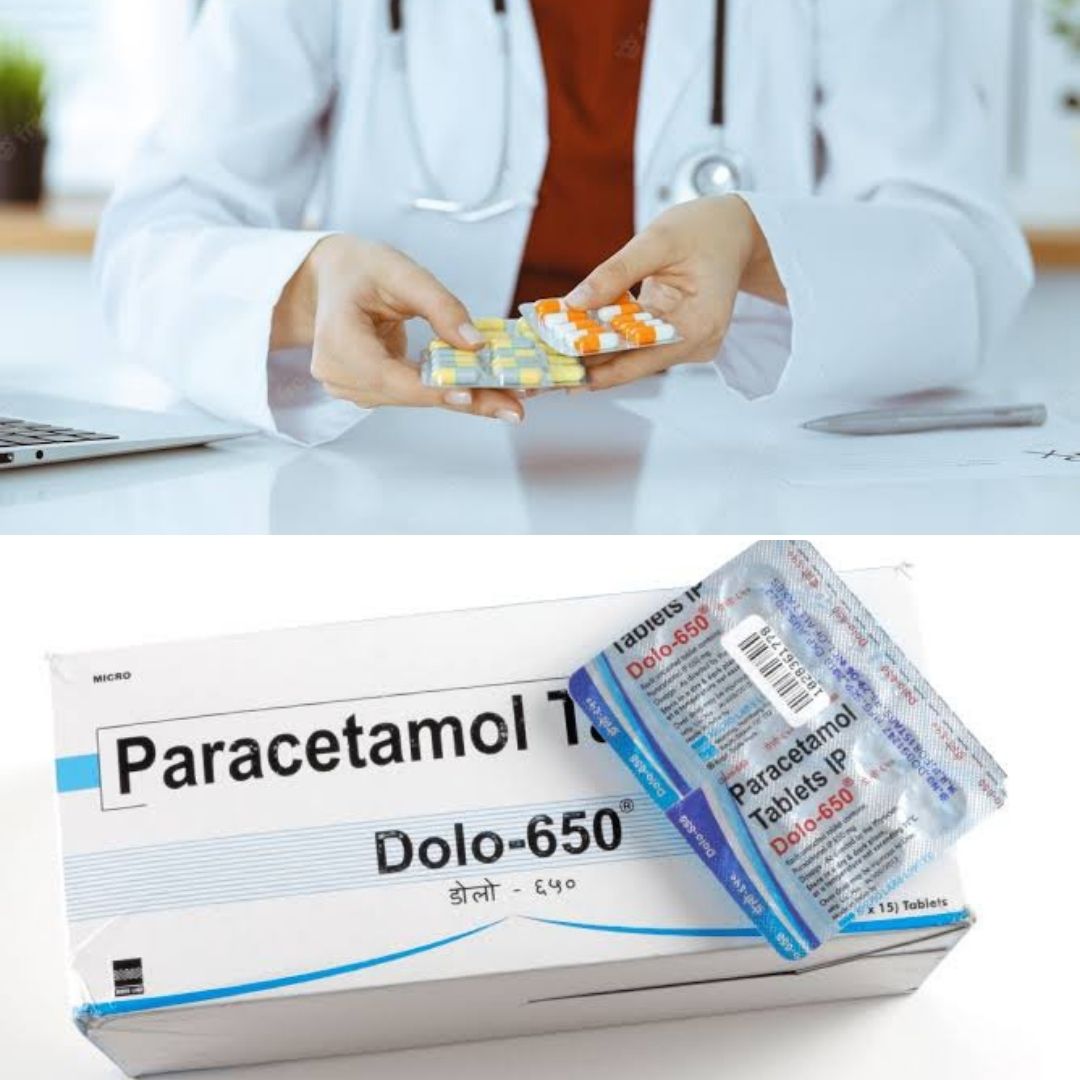Dolo-650 Tablet Makers Bribed Doctors With Freebies Worth Rs 1,000 Crore To Prescribe Drug
Writer: Laxmi Mohan Kumar
She is an aspiring journalist in the process of learning and unlearning many things. Always up for discussions on everything from popular culture to politics.
India, 19 Aug 2022 6:21 AM GMT
Editor : Snehadri Sarkar |
While he is a massive sports fanatic, his interest also lies in mainstream news and nitpicking trending and less talked about everyday issues.
Creatives : Laxmi Mohan Kumar
She is an aspiring journalist in the process of learning and unlearning many things. Always up for discussions on everything from popular culture to politics.
To ensure higher profit margins, Dolo-650 makers have allegedly distributed freebies worth ₹1,000 Crores to medical professionals to prescribe the tablet to patients. The Supreme Court has moved the case as a dire violation of Indians rights to Health.
The Central Board of Direct Taxes (CBDT), on July 13, accused the makers of the Dolo-650 tablet of indulging in unethical practices by distributing freebies worth ₹1,000 crores to medical professionals in an attempt to boost their sales and profit margin.
The case, which had appeared before the bench of Justices DY Chandrachud and AS Bopanna, was described as a "serious issue" that tampered with the fundamental Right to Health. The judges have asked the solicitor to file a response to the plea, after which the case would be moved for further hearing on September 29.
Petitioners Await Response From Centre
As per the pricing standards set for pharmaceuticals, the market price for any tablet up to 500mg will be regulated under price control mechanisms of the government, and those above 500mg can be decided by the responsible Pharma company. With such regulations in place, it was found that the pharmaceutical company that makes Dolo was allegedly distributing freebies worth about ₹1,000 crores to medical practitioners to have their 650 mg dose drug prescribed to patients.
Advocate Sanjay Parikh, who appeared for the petitioner Federation of Medical and Sales Representatives Association of India (FMRAI), said that the pharmaceuticals had bribed the doctors to raise their profit margin. The advocate conveyed that he would like to bring many such similar incidents to the knowledge of the court after a response to the same is filed by the Centre.
The tablet had become a popular trend during the pandemic, and supporting this, Justice Chandrachud added that,
"This is exactly the drug that I had when I had COVID recently. This is a serious issue, and we will look into it,".
As reported by the Business Standards, a counsel had earlier sought permission from the court to file an intervention on behalf of the accused pharma company. This was permitted as the court said they would also like to hear their version on the issue. Following this, the bench asked Additional Solicitor General KM Nataraj, representing the Centre, to file his response to the plea by the petitioner within ten days. A week's time, thereafter, has been provided for the latter to file their rejoinder. The issue has been listed for further hearing on September 29.
Backdrop Of The Trending Tablet Case
The allegations relating to the freebies were made after the Income Tax Department had raided 36 premises of the pharma company, Micro Labs Ltd., across nine states. The raid was followed by a plea by an NGO seeking a Uniform Code of Pharmaceutical Marketing Practices that would curb instances of unethical conduct by Pharma companies. The plea also put forth a request to have an effective monitoring mechanism in place to ensure transparency and accountability from pharma companies. Parikh advocated the issue under public interest and said that pharmaceutical companies should also be liable for punishment for adopting such practices.
In the current scenario, the code facilitates the pharmaceuticals to go scot-free in spite of actuating and encouraging bribery and holds just the doctor liable by cancelling their licenses for misconduct. Parikh stated that these loopholes encourage more companies to adopt unethical ways to increase their profit margin.
He also added that they have been pursuing this petition with the government since 2009, asking them to formulate the Indian Medical Council (Professional Conduct, Etiquette and Ethics) Regulations of 2002 in such a way that prescribes a Code of conduct for doctors in their relationship with the pharmaceutical and allied health sector industry. Through this means, the government can prohibit and keep a check on monetary grants and gifts received by medical practitioners from Pharmaceutical companies.
These unethical practices are carried on under the umbrella term of 'sales promotion' and can adversely influence the doctors to prescribe unnecessarily higher doses of the drugs or even prescribe them for a duration longer than necessary to boost the drug sales. Requesting the government to look into this issue, Parikh referred to a similar issue that was taken to court and said, "we all know what happened with Remdesivir injections and other drugs of those combinations".
Once the government responds to the plea, the bench would take the issue ahead and accordingly consider the request to slap penal consequences on the pharmaceutical industry to protect the people's Fundamental Right to Health.
Also Read: Delhi High Court Suggests Changes In Required Document Criteria For Remdesivir
 All section
All section















